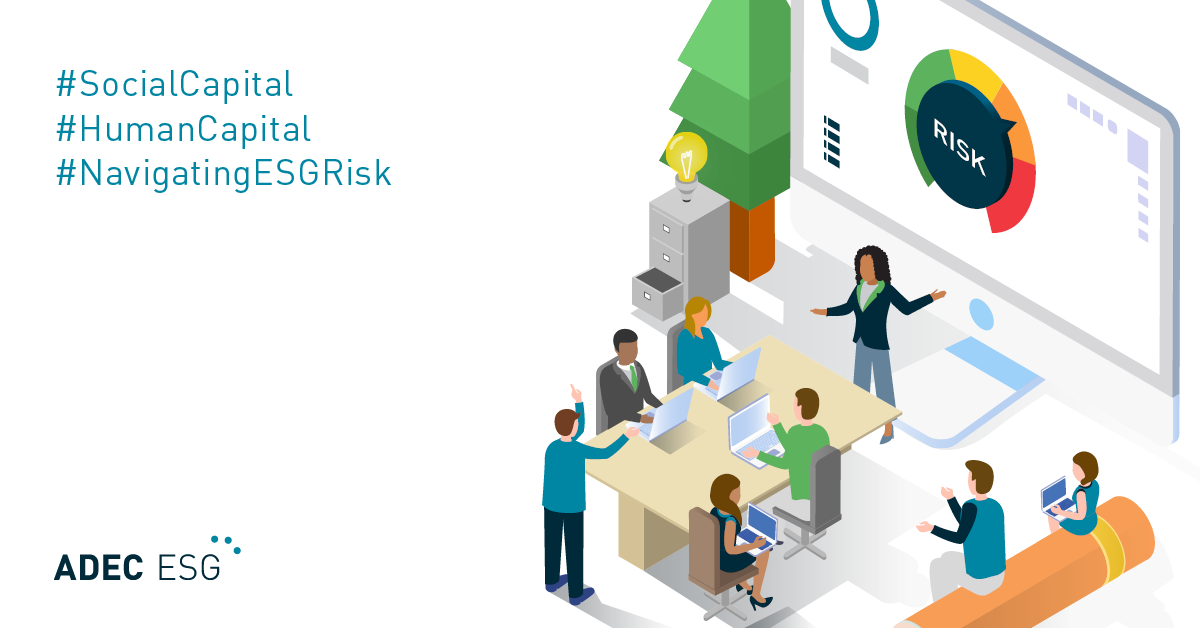 There is only so much that a single organization can achieve in order to improve the impact it has on the environment or society, without collaborating with the wider aspects of its supply chain. In this article we will discuss five key items to consider about sustainable supply chains.
There is only so much that a single organization can achieve in order to improve the impact it has on the environment or society, without collaborating with the wider aspects of its supply chain. In this article we will discuss five key items to consider about sustainable supply chains.
1. Why Supply Chain Sustainability is becoming so important
There are several significant trends occurring globally that, when combined, are fundamentally impacting supply chain risks. The rapid changes and redistribution of labor rates throughout Asia-Pacific; the Western world; substantial, global environmental concerns; the lack of supply availability; and the increasing momentum of green, ethical consumerism; these are colliding as a group of issues.
The need for businesses to work with their supply chains to mitigate these risks and combined effects (which are often greater in their supply chains than the businesses’ direct activities), has become a principal issue.
This is ultimately why Supply Chain Sustainability has become such a pressing issue in recent years.
2. Take Environmental & Social Sustainability in Equal Measure
It is important to define and consider what we mean by supply chain sustainability. Companies should recognize that this is about managing our impact on both the natural and social environment in which we operate.
Indexes and reporting frameworks that are dedicated to Supply Chain sustainability are continuously being developed and, increasingly, combine both social and environmental issues within integrated frameworks.
Specifically, niche reporting and management frameworks such as the CDP Supply Chain programme or Ethical Trading Initiative will continue to provide the necessary depth to reporting and auditing. Nevertheless, these issues were traditionally dealt with as separate business functions; increasingly, these are managed as integrated processes. Take Marks & Spencer’s Plan A program for example.
The longer-term trends, such as the interest gaining in Integrated Reporting standards, are beginning to redefine how organizations will be assessed beyond financial performance, which will largely take into account and depend on the global impacts of their supply chains.
3. Sustainable Supply Chain Management is a continuous process
Whether you are considering social or environmental issues here, the process of managing the impacts and working with your suppliers should to be a continuous one for two reasons. The first is due to the reality that many buyers will be experiencing high rates of supplier turnover. In the fashion and apparel industry for example (a sector where FirstCarbon Solutions (FCS) is heavily involved), it is not uncommon for large retailers to experience 35-40% annual supplier turnover. The speed at which these new trading relationships form means there has to be an efficient, on-going process for suppliers and retailers engaging with one another, sharing sustainability data, and working towards shared goals.
The second is one of continuous improvement. Accepting that “Continuous improvement” is sometimes an overused term, it is nonetheless an important one in this context, provided that the ‘improvement’ aspects are also considered against minimum or a basic set of standards that are agreed between the buyer and the supplier from the start. Good, sustainable supply-chain management should not be confused with one-off supplier audits.
4. It’s a collaborative process
The “comply or you die” ethic is still an overarching issue and still very common in what many brands or retailers will refer to as supply chain sustainability. This refers to the common consequence of corporate buyers terminating trading relationships when certain standards or corrective action plans are not fulfilled.
Successful sustainable supply chains are generally collaborative ones, wherein both parties in a trading relationship work towards shared values and collaborative solutions. A number of British clothing retailers have been utilizing this approach for example, moving away from traditional ethical audit programs to employing dedicated teams that permanently develop and manage supplier outreach and collaboration programs.
5. Sustainable Supply Chains are profitable ones
Organizations focusing their efforts in social and environmental sustainability show major competitive advantages, particularly with regard to operational efficiency. Because sustainability will often go hand-in-hand with resource efficiency, reduced costs, increased profitability and increased shareholder value, this will naturally occur as a by-product and lead to the following benefits:
- Risks are generally better planned for and anticipated, such as supply risk and potential for increased production costs
- Innovative processes and product research and development emerge
- Improvements to working conditions and operational efficiency which will often, in turn, be a driver for higher quality and more reliable products and services.
FCS is a leader in sustainability consulting. If you wish to learn more about how to reduce your environmental impact and engage with your supply chain, please click the link below.
Did you enjoy this post? The author of this article is Ben Wilde. Learn more about him here.




